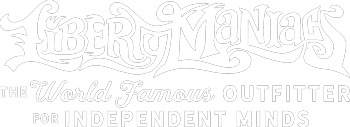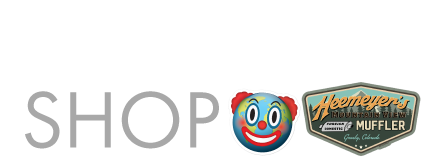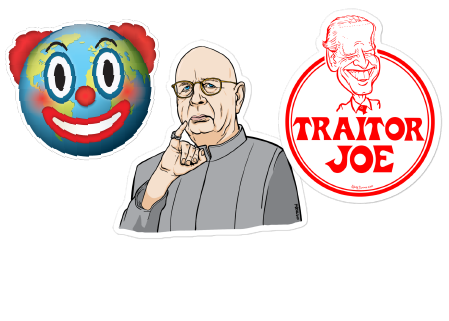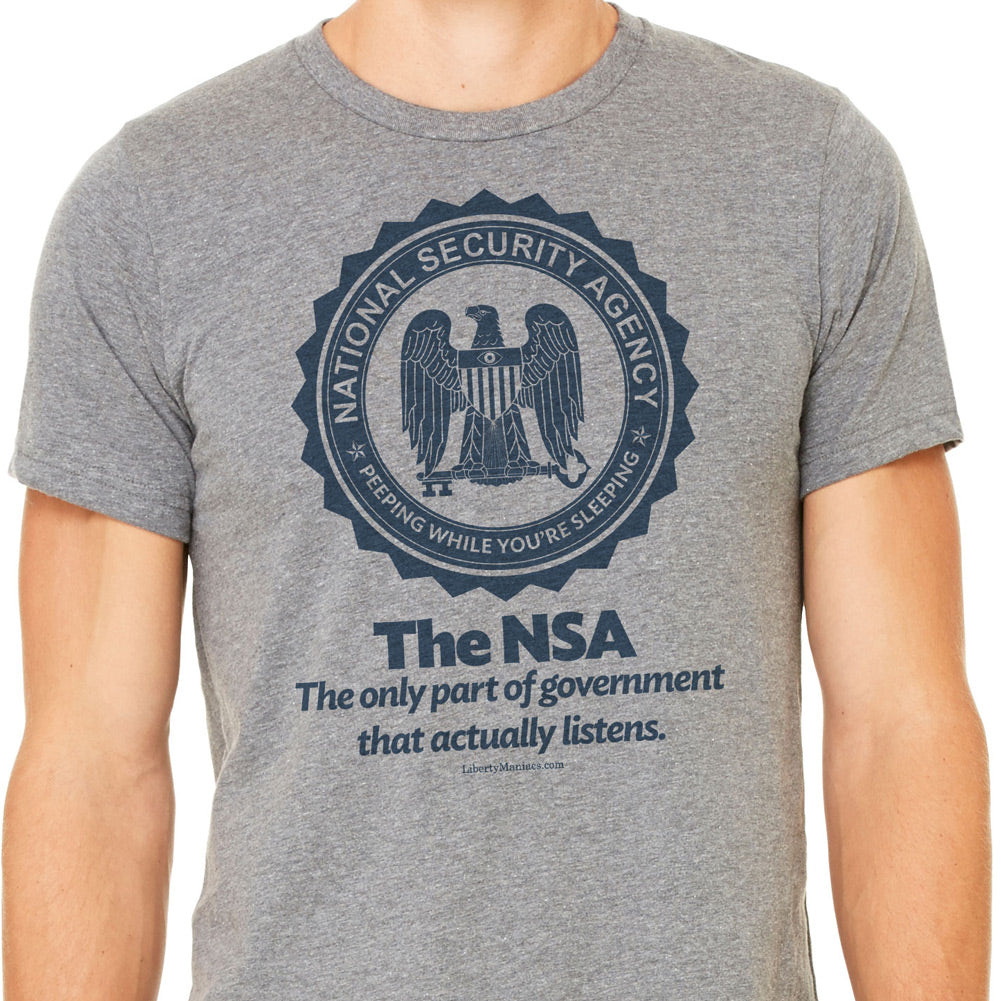Browse Categories
Add description, images, menus and links to your mega menu
A column with no settings can be used as a spacer
Link to your collections, sales and even external links
Add up to five columns
Add description, images, menus and links to your mega menu
A column with no settings can be used as a spacer
Link to your collections, sales and even external links
Add up to five columns
Enemies of Satire: How Liberty Maniacs Survived Censors, Lawsuits, and the Joke Police
May 01, 2025 3 min read
In America, you're supposed to be allowed to make fun of the government.
But if you're a guy running an indie satire shop out of Minnesota, mocking the surveillance state on a T-shirt? That'll get you cease-and-desist letters from both the National Security Agency and the Department of Homeland Security.
That happened to me.
In 2013, I released a parody shirt that said: "The NSA: The only part of government that actually listens."
It was a joke. A good one. It caught fire online. And then the federal government came knocking—well, technically, faxing.
The NSA sent a cease and desist to my printer and shop host, claiming I violated Public Law 86-36 (50 U.S.C. § 3613)—an obscure Cold War-era statute that prohibits unauthorized use of the agency's name or seal if it might suggest government endorsement.
Nobody with a functioning frontal lobe thought I had NSA merch approval. But that didn't stop them.
Then DHS piled on, citing 18 U.S.C. §§ 506, 701, and 1017, claiming that my "Department of Homeland Stupidity" parody could lead to fines and imprisonment. Jail. For a joke on a coffee mug.
Instead of backing down, I sued them.
I filed a federal lawsuit: McCall v. National Security Agency, U.S. District Court, District of Maryland, 2013.
I was represented by Paul Alan Levy of Public Citizen, probably the greatest free speech attorney in the country. Levy's known as "the Web Bully's Worst Enemy." He's taken on everyone from corporate IP trolls to billionaires trying to gag critics with junk lawsuits.
We argued that parody is core political speech protected by the First Amendment, and that the use of official seals for criticism is fair use—especially when the criticism is as blistering as it is obvious.
The NSA and DHS weren't just wrong. They were abusing vague, intimidating laws to suppress political commentary. No one had ever challenged them on this in court—until we did.
In February 2014, we won.
The agencies agreed to issue formal letters to Zazzle and to me, stating that:
-
The laws they cited do not prevent parody or the use of agency seals in commentary,
-
My designs were lawful, and
-
They had no legal grounds to stop their sale.
They also agreed to pay $500 in court costs, which was more about principle than payday.
The settlement letters are real. You can read the background here:
This wasn't just a win for me. It was a shot across the bow for anyone who thinks bureaucrats should be shielded from mockery. Two federal agencies tried to squash speech, and they were forced to admit—in writing—that they couldn't.
But it didn't stop there.
Hillary Clinton's Super PAC tried to kill a parody shirt I made that said "I'm Ready for Oligarchy," a twist on her campaign slogan. Their lawyers sent takedown notices. I responded publicly: Bring it on.
Bernie Sanders' campaign didn't like my "Bernie Is My Comrade" parody. They sent a cease and desist. But unlike Hillary's camp, Bernie's people retracted it quickly—likely realizing the optics of a socialist silencing satire weren't great.
Then came Trader Joe's, threatening me over a "Traitor Joe's" design. Again, obviously parody. But corporate lawyers are increasingly indistinguishable from censors with better dental plans.
Even the estate of Che Guevara's photographer tried to come after me for spoofing his iconic image. The face of revolutionary communism, defended with capitalist IP law. Irony so thick it deserves its own SKU.
In every case, it wasn't just the threat of lawsuits—it was platforms folding instantly. Zazzle. Print providers. Online storefronts. They all wanted to avoid legal headaches, so they erased the designs without a court order or even a real dispute. That's how most censorship works today: soft, quiet, and preemptive.
That's the real danger.
Because this isn't about hurt feelings or edgy jokes. It's about power—and the lengths it'll go to avoid being ridiculed. Whether it's a three-letter agency or a billion-dollar brand, the message is the same: "You can't say that."
But yes, you can.
We proved that in court. We've proved it over and over again.
And the punchline? Every time they try to bury a joke, they prove why it had to be told in the first place.
Leave a comment
Also in Liberty Maniacs News

You’re Not a Nazi. They Just Want You to Shut Up.
March 28, 2025 7 min read
They call you a Nazi so you’ll sit down and shut up—but the man who actually escaped them would say you’re nothing of the sort.

10+ Ways USAID Burns Your Tax Dollars on Pure Insanity
February 19, 2025 4 min read
USAID: where your tax dollars fund transgender operas, Taliban poppy fields, and luxury hotels for migrants—because actual humanitarian aid is so last century.

Trump’s Day-One War on the Government-Censorship Hydra
January 21, 2025 1 min read
In a move to reclaim free speech, President Trump’s latest executive order shines a spotlight on a vast web of federal meddling and Big Tech compliance. From CISA’s pivot to policing memes to hush-hush partnerships that throttled dissent, this piece dives into Washington’s creeping censorship—and asks if this crackdown can truly put an end to the digital silencing of Americans.
Recent Articles
- Enemies of Satire: How Liberty Maniacs Survived Censors, Lawsuits, and the Joke Police
- You’re Not a Nazi. They Just Want You to Shut Up.
- 10+ Ways USAID Burns Your Tax Dollars on Pure Insanity
- Trump’s Day-One War on the Government-Censorship Hydra
- The Ultimate Guide to Men's Clothing Sizing
- The Ideological Capture Behind the Woke Left's Meltdown Over Trump's 2024 Victory
- The Yuri Bezmenov Playbook: A Guide to Ideological Subversion
- 198 METHODS OF NONVIOLENT POLITICAL ACTION
- Why the 2nd Amendment is Awesome
- I Have A Nightmare
Sections You Might Like
Subscribe
Sign up to get the latest on sales, new releases and more …








